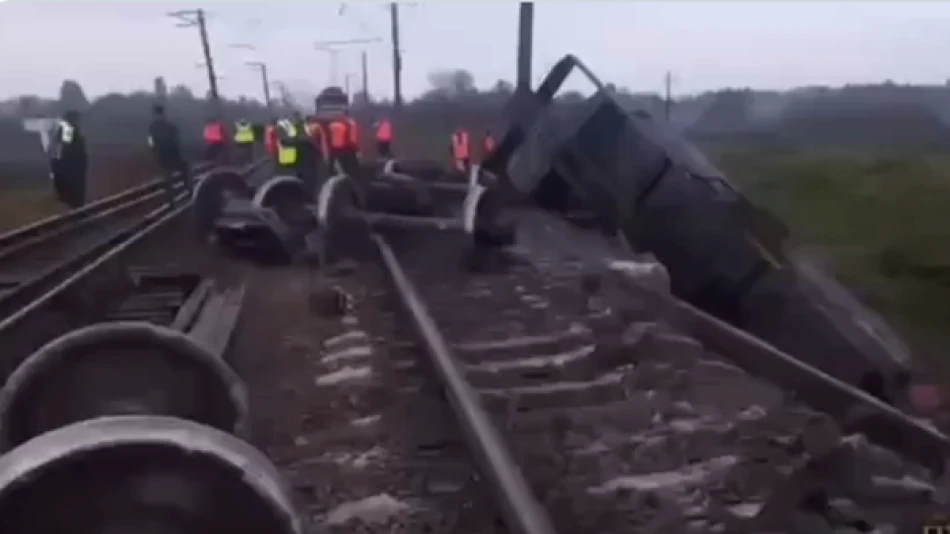
Ukraine Strikes Russian Railway Network, Disrupting Supply Lines
Ukraine Escalates Rail War Deep Inside Russia with Coordinated Infrastructure Strikes
Ukrainian military intelligence has claimed responsibility for two coordinated attacks on Russian railway networks over the weekend, marking a significant escalation in Kyiv's campaign to disrupt Moscow's military logistics far from the front lines. The operations, which killed at least three people, targeted critical rail infrastructure in Russia's Oryol and Leningrad regions, demonstrating Ukraine's growing capacity to strike deep into Russian territory.
Strategic Targeting of Russia's Military Lifelines
A Ukrainian military intelligence source confirmed to international media that the operations were carried out in collaboration with regular army units. The first strike hit the Oryol region on Saturday, followed by a second attack in the Leningrad region on Sunday morning. These regions house vital railway connections that serve as arteries for Russian military supply chains feeding the war effort in Ukraine.
The choice of targets reflects Ukraine's evolving strategy of attacking Russia's logistical backbone rather than engaging in costly frontal assaults. Railway networks have become increasingly critical for Russia as alternative supply routes face mounting pressure from international sanctions and Ukrainian interdiction efforts.
Expanding Ukraine's Operational Reach
These attacks represent a notable expansion of Ukrainian operations deep into Russian territory, with the Leningrad region strike occurring hundreds of kilometers from the Ukrainian border. This demonstrates either improved long-range capabilities or the presence of Ukrainian operatives operating within Russia itself.
The coordinated nature of the weekend strikes suggests a sophisticated intelligence operation, marking a departure from opportunistic sabotage to systematic targeting of Russia's war infrastructure. Such operations require extensive planning, local intelligence, and precise timing to maximize disruption while minimizing civilian casualties.
Implications for Russia's War Machine
Railway disruptions pose a particular challenge for Russia's military logistics, which heavily rely on rail transport for moving heavy equipment, ammunition, and troops. Unlike road networks, railway infrastructure is difficult to defend comprehensively and expensive to repair quickly, making it an attractive target for asymmetric warfare tactics.
The psychological impact of these strikes may prove as significant as their tactical value, demonstrating that Russia's vast territory offers no sanctuary from Ukrainian retaliation. This could force Russia to divert resources from offensive operations to protect domestic infrastructure, potentially affecting the overall war effort.
International Ramifications and Precedent
Ukraine's acknowledgment of responsibility for attacks inside Russia represents a calculated diplomatic risk, potentially complicating relationships with allies who have urged restraint in cross-border operations. However, Kyiv appears increasingly willing to accept this diplomatic cost in exchange for military advantages.
These operations establish a precedent for how smaller nations might counter larger aggressors by targeting critical infrastructure rather than engaging in conventional battles. The success of such tactics could influence military doctrine and conflict dynamics in future regional disputes worldwide.
Most Viewed News

 Layla Al Mansoori
Layla Al Mansoori






